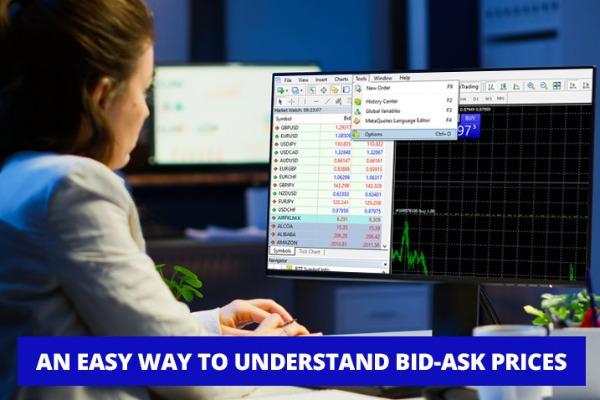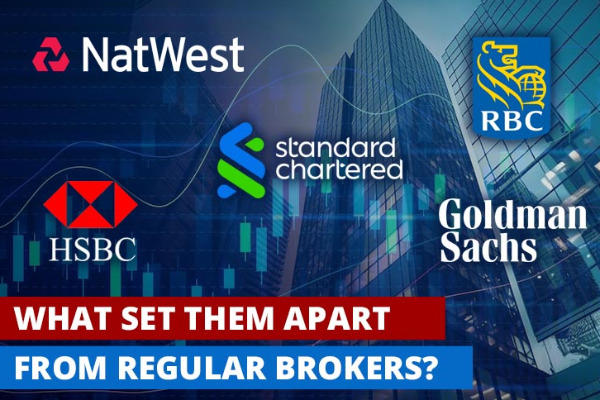Trading Brent crude oil is actually easy and full of opportunities, but there are things to watch out for if you're still a beginner.
Despite the controversy, crude oil is still the world's primary energy resource. The high demand for oil across the globe has made the commodity a very popular instrument to trade. It can be extremely liquid thus giving more opportunities for traders to gain profits. There are two types of oils that are traded on the financial market, those are WTI (West Texas Intermediate Crude) and Brent Crude.
The Brent crude oil in particular is the world's benchmark with almost two-thirds of oil contracts traded. That fact alone makes this instrument a great product to trade. Brent crude is able to command a premium price for oil, which is why a lot of people decide to trade it instead of the WTI.

Reasons to Trade Brent Crude Oil
Inflation Hedging
Commodities like Brent crude oil are independent of major currencies. That means they often hold their value even if the currency falls during inflation. This makes trading Brent crude oils perfect for hedging during depressing times. However, the risk-to-reward trade-off that hedging offers not only reduces the potential risk but also chips away at potential gains. To put it simply, hedging is not without risk and might cost traders. That being said, hedging is still an amazing way to protect your portfolio against unwanted movement.
Diversification
Commodities often become the obvious choice for asset diversification. As a matter of fact, having brent crude oils in an equity-only portfolio can lower the volatility. The reason is that there are fewer correlations between them. Diversifications can reduce risks and act as a volatility buffer. However, traders need to understand holding a portfolio can be hard to manage. In some cases it can be more expensive since buying and selling many different assets incurs more transaction fees and brokerage commissions.
Volatility
Commodities like Brent crude oil can be highly volatile and experience wild price swings. While there is a risk of trading with volatile assets, traders can benefit from trading Brent oil CFDs. This can bring traders large profits if done carefully. That is why traders should prepare themselves before choosing to trade with CFDs assets.
How to Make Profit With Brent Crude Oil?
For traders who are interested in trading Brent crude oil, there are a few things to do before entering the market. These can help them determine what are the best steps to take.
Fundamental Analysis
Fundamental analysis is a method of measuring a security's intrinsic value by examining related economic and financial factors. To do this, traders should understand the fundamental factors that drive Brent crude oil price.
Learn What Drives the Price
Just like any other financial instruments, Brent crude oils were influenced by supply and demand. It is affected by the worldwide output as well as global economic prosperity. If the demand rises or the production declines, it would encourage traders to bid crude oil higher. That means the price will go up. On the contrary, oversupply and shrinking demand can lead traders to sell crude oils, thus reducing the price.
By far, the largest consumers of oil have typically been developed nations such as the US and European countries. As such, paying attention to the demand of these countries alongside their economic performance is important to determine the Brent crude oil movements.
See also: Oil Price Today
Besides the economics of the top oil producers and consumers, geopolitical factors also play an important role. For example, the war between Russia and Ukraine has proven to be capable of accelerating oil prices due to concerns over limited supply. Additionally, OPEC's policy to increase or cut oil production can affect the price as well.
Learn the Outside Factors
Understanding the positive correlation between the price of crude oil and global growth is also important. With the Chinese and US economies being the two largest in the world and are barometers for global growth, it is necessary to watch the two countries' economic conditions.
Technical Analysis
Technical analysis is a method that includes analyzing statistical trends gathered from trading activity. There is a variety of technical indicators and price patterns a trader can use to look for signals to enter the market. It is not necessary to use complex indicators; the most important thing is that traders understand how to use them.
There are several technical analyses that are suitable for trading Brent crude oil, each has a different way to do it. For example, the Commodity Channel Index (CCI) indicator allows traders to recognize oversold and overbought conditions in the oil market. Aside from that, traders can also use a swing trading strategy that relies on the changes in price swings to estimate the most potential entry and exit positions.
Market Sentiment Analysis: Understand the Crowd
It is very important that traders understand how the flocks behave on certain instruments. With Brent crude oil, most professional traders and hedge funds dominate the futures market. Normally, professional traders will take positions to offset physical exposure while hedge funds tend to speculate on the long and short-term direction.
Besides, there are some retail players who like to trade small in the Brent crude oil market. Another thing that traders should understand is that the subsequent waves of greed and fears can intensify the underlying trend momentum. This can lead to extreme bullish sessions or price collapses with exceptionally high volume.
Build a Strategy
Most experts in Brent crude oil market follow a strategy. By doing this, not only will they amplify the chance of success, but they also prepare themselves for unexpected movements. There are different strategies a trader can use for trading Brent crude oil. Each of them has a different method to apply. However, it doesn't necessarily mean that traders should only use one of them and ignore the rest. Instead, they are welcome to combine all of them for the best results.
Risk Management
The most important step in any trading strategy would be to apply solid risk management for every trade. It is useful to mitigate some risks that traders might be subjected to during trading. For trading Brent crude oil, the 1:2 risk-reward ratio is quite sufficient. That means the profit target should be roughly two times more than the stop-loss level.
Pick the Right Broker
Despite being one of the most popular commodities to trade, not all brokers provide the best conditions for trading Brent crude oil. That's why traders should look for the best broker in terms of oil spreads and other features that support commodity trading. For example, brokers like IC Markets provide traders with the best spread for trading Brent crude oil (starting from 0.20 pips). Not only do they allow spot trading for Brent crude oils, but they also accommodate traders with Brent futures CFD for more choice.
IC Markets is an online forex broker operating under the company of International Capital Markets Pty Ltd. Traders under the Australian jurisdiction are provided with the trading service of IC Markets AU that is headquartered in Australia and licensed by the Australian Securities and Investments Commission (ASIC).
On the other hand, non-Australian traders who open an account in this broker are registered under IC Markets SEY that is based in Seychelles, and regulated under the Seychelles Financial Services Authority (SFSA). The dual operation is a result of the relatively new rules from ASIC that prohibit their regulated broker to offer trading services outside Australia.
Classified as an ECN broker, IC Markets provide clients with MetaTrader 4, MetaTrader 5, cTrader as platform trading options. This broker also follows market trends to include Cryptocurrencies as one of its products, enriching its already wide selection of trading assets that include Currencies, Indices, Metals, Energies, Softs, Stocks, as well as Bonds.
The minimum deposit in IC Markets is in the middle range compared to other ASIC-regulated brokers, as it reaches $200 for every client. Market analysis materials are also prepared regularly for trading insights on IC Markets's official website, proving their competence to serve their traders with important contents created by market experts that work specifically for them.
For payment methods, IC Markets allows funding and withdrawal via wire transfer, credit card, PayPal, Skrill, Neteller, FasaPay, UnionPay, as well as Bitcoin via BitPay. The more interesting aspect from this broker is its multi-base currencies that include USD, AUD, EUR, GBP, SGD, NZD, JPY, CHF, HKD, and CAD.
As the trading technology in IC Markets is highly equipped with co-located servers and extremely low latency (especially on cTrader), the broker is widely known for its capability in hosting traders with the special needs for high-frequency trading as well as scalping.
To sum up, IC Markets is a fitting destination for active traders looking for a well-regulated broker. IC Markets is also flexible in terms of base currency and payment methods, signaling their commitment to welcome traders beyond their home country. As of late 2019, IC Markets provided their website in 18 international languages including English, Korean, Indonesian, French, Spanish, Italian, Malay, German, and Chinese.
Final Words
Brent crude oil is an important commodity that can provide traders with high liquidity. This means there are plenty of chances to make profits from the market and the price movement. To maximize the opportunity, traders should understand the fundamental factors of Brent crude oil like geopolitical issues as well as supply and demand. For better results, traders can also apply technical analysis, risk management, and make sure that their broker supports oil trading with the best spreads.

 Dedicated FREE FOREX VPS
Dedicated FREE FOREX VPS Free FOREX Virtual Private Server
Free FOREX Virtual Private Server MT4 Demo Contest, Get $500
MT4 Demo Contest, Get $500 Sign Up for an Account, Claim 60% Deposit Bonus
Sign Up for an Account, Claim 60% Deposit Bonus Free MT4/MT5 VPS 2024
Free MT4/MT5 VPS 2024 Send E-mail and Get Free Merchandise
Send E-mail and Get Free Merchandise $1K Refer a Friend Bonus for Pepperstone Pro clients
$1K Refer a Friend Bonus for Pepperstone Pro clients Maximize Your Earnings with 100% Deposit bonus
Maximize Your Earnings with 100% Deposit bonus Trade to Win, $5,000 Monthly Demo Contest
Trade to Win, $5,000 Monthly Demo Contest Claim 30% + 15% Deposit Bonus from LiteFinance
Claim 30% + 15% Deposit Bonus from LiteFinance











